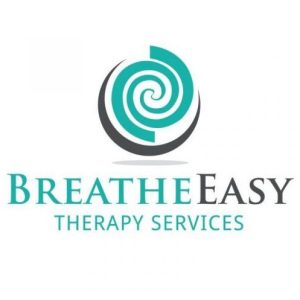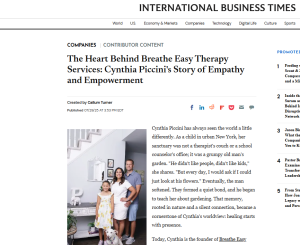Living with chronic pain can feel like navigating an invisible battle that others can’t fully understand. At Breathe Easy Therapy, we recognize that healing extends far beyond medical treatments and medications—it encompasses the profound need for human connection, understanding, and shared experience. That’s why we’re excited to announce the launch of our new Chronic Pain Support Group, designed to create a safe space where individuals can find community, hope, and practical tools for living well with persistent pain.
The Hidden Struggles of Chronic Pain
Chronic pain affects more than 50 million Americans, yet its impact extends far beyond physical discomfort. When pain persists for months or years, it fundamentally changes how we interact with the world around us. Simple activities that others take for granted—from getting dressed in the morning to maintaining social relationships—can become overwhelming challenges.
The ripple effects of chronic pain often include:
- Social isolation and withdrawal from loved ones
- Difficulty maintaining employment or daily responsibilities
- Increased anxiety and depression
- Sleep disturbances and fatigue
- Feelings of being misunderstood or dismissed by others
- Loss of identity and purpose
Research consistently shows that 35% to 45% of people with chronic pain experience depression, while anxiety disorders occur at significantly higher rates than in the general population. This isn’t surprising when we consider that chronic pain affects not just our bodies, but our entire sense of self and place in the world.
Why Traditional Healthcare Isn’t Always Enough
While medical interventions play a crucial role in pain management, they rarely address the full spectrum of challenges that chronic pain presents. Traditional healthcare models often focus primarily on symptom reduction rather than helping individuals build the psychological resilience and social connections necessary for long-term wellbeing.
Many individuals find themselves cycling through countless appointments, treatments, and medications, yet still feeling emotionally isolated and struggling to adapt to their new reality. This is where support groups become invaluable—they fill the gaps that medical treatment alone cannot address.
The Science Behind Peer Support
Research published in the Journal of Pain and Symptom Management demonstrates that participation in chronic pain support groups leads to measurable improvements in multiple areas of life. Study participants showed:
- Increased functional ability and activity levels
- Reduced reliance on healthcare providers, particularly family physicians
- Enhanced social networks and peer relationships
- Improved self-esteem and overall morale
- Better adaptation to the challenges of living with chronic pain
- Access to new coping strategies and resources
These outcomes occur because support groups address needs that individual medical treatments simply cannot meet. When we connect with others who truly understand our experience, something powerful happens—we realize we’re not alone, and we discover that others have found ways to thrive despite their pain.
What Makes Support Groups Uniquely Powerful
Shared Understanding
There’s an immediate sense of relief that comes from being in a room with people who “get it.” You don’t have to explain why you canceled plans last-minute or why you’re struggling with something that seems simple to others. This validation is profoundly healing and reduces the emotional burden of constantly justifying your experience.
Practical Wisdom
Support group members become living libraries of practical strategies, from pacing techniques and helpful products to communication strategies for family members. This peer-generated knowledge often proves more valuable than generic advice because it comes from real-world experience.
Hope and Inspiration
Witnessing others who are further along in their journey provides tangible proof that it’s possible to build a meaningful life alongside chronic pain. These role models offer hope during dark moments and demonstrate that adaptation is possible.
Accountability and Motivation
Group members naturally support each other’s goals and provide gentle accountability for implementing new strategies. This social support increases the likelihood of following through on positive changes.
Reduced Healthcare Utilization
Studies show that support group participants make fewer emergency room visits and require less frequent physician appointments, suggesting that peer support helps individuals develop confidence in managing their condition independently.
The Mental Health Connection
Chronic pain and mental health are inextricably linked. Pain affects the same brain pathways involved in mood regulation, which explains why depression and anxiety are so common among those with persistent pain conditions. Support groups address this connection by:
Providing emotional regulation tools: Members learn from each other how to manage the emotional ups and downs that accompany chronic pain.
Reducing isolation: Regular social connection combats the loneliness that often exacerbates depression and anxiety.
Building self-efficacy: As individuals share successes and learn new strategies, they develop greater confidence in their ability to manage their condition.
Normalizing struggles: Understanding that others face similar challenges helps reduce shame and self-blame.
What to Expect from Professional-Led Support
At Breathe Easy Therapy, our chronic pain support group combines the power of peer connection with professional guidance. Our trained facilitators help ensure that discussions remain constructive and therapeutic while creating space for authentic sharing and mutual support.
Group sessions typically include:
- Check-ins and sharing of current challenges
- Educational components on pain science and management strategies
- Skill-building exercises for coping and communication
- Goal-setting and accountability partnerships
- Resource sharing and practical tips
- Mindfulness and relaxation techniques
Breaking the Cycle of Isolation
One of the most damaging aspects of chronic pain is how it can gradually erode our social connections. Pain makes it difficult to maintain the energy for social activities, and the unpredictable nature of symptoms can make it challenging to commit to plans. Over time, this leads to a shrinking social world precisely when we need support the most.
Support groups break this cycle by providing a low-pressure social environment where cancellations are understood and accommodations are built into the structure. Many groups offer both in-person and virtual options, recognizing that flexibility is essential for people managing chronic conditions.
Beyond Coping: Thriving with Chronic Pain
While much of chronic pain treatment focuses on “coping” or “managing,” support groups help individuals move beyond mere survival toward genuine thriving. This shift in perspective—from enduring pain to living fully alongside it—represents a fundamental change in how we relate to our condition.
Thriving with chronic pain might include:
- Discovering new sources of meaning and purpose
- Developing deeper, more authentic relationships
- Cultivating resilience and psychological flexibility
- Finding creative ways to adapt activities and goals
- Building a rich life that accommodates physical limitations
- Becoming an advocate or mentor for others
The Ripple Effect of Support
The benefits of participation in chronic pain support groups extend far beyond the individual. Family members often report feeling less burdened and more hopeful when their loved one has access to peer support. Relationships improve as individuals develop better communication skills and emotional regulation tools.
Additionally, many support group participants go on to become advocates and mentors themselves, creating a positive cycle of support that strengthens the entire chronic pain community.
Taking the First Step
If you’re living with chronic pain, know that seeking support is not a sign of weakness—it’s a sign of wisdom. Recognizing that you don’t have to navigate this journey alone is actually a crucial step toward building resilience and reclaiming your life.
At Breathe Easy Therapy, our new Chronic Pain Support Group is designed to meet you wherever you are in your journey. Whether you’re newly diagnosed or have been living with pain for years, whether you’re struggling to function or looking to optimize your management strategies, you’ll find understanding and practical support in our group.
Ready to Connect?
Living with chronic pain is challenging enough without facing it alone. Our support group offers a path toward greater understanding, improved coping skills, and meaningful connections with others who truly understand your experience.
Your journey toward better pain management and improved quality of life doesn’t have to be solitary. Connection, understanding, and hope are waiting.
chronic pain emotional supportTo learn more about our Chronic Pain Support Group or to register for upcoming sessions, contact Breathe Easy Therapy today. Take the first step toward building the support network you deserve.
At Breathe Easy Therapy, we believe that healing happens in community. Our comprehensive approach to mental health and wellness includes both individual therapy and group support options designed to meet your unique needs.





